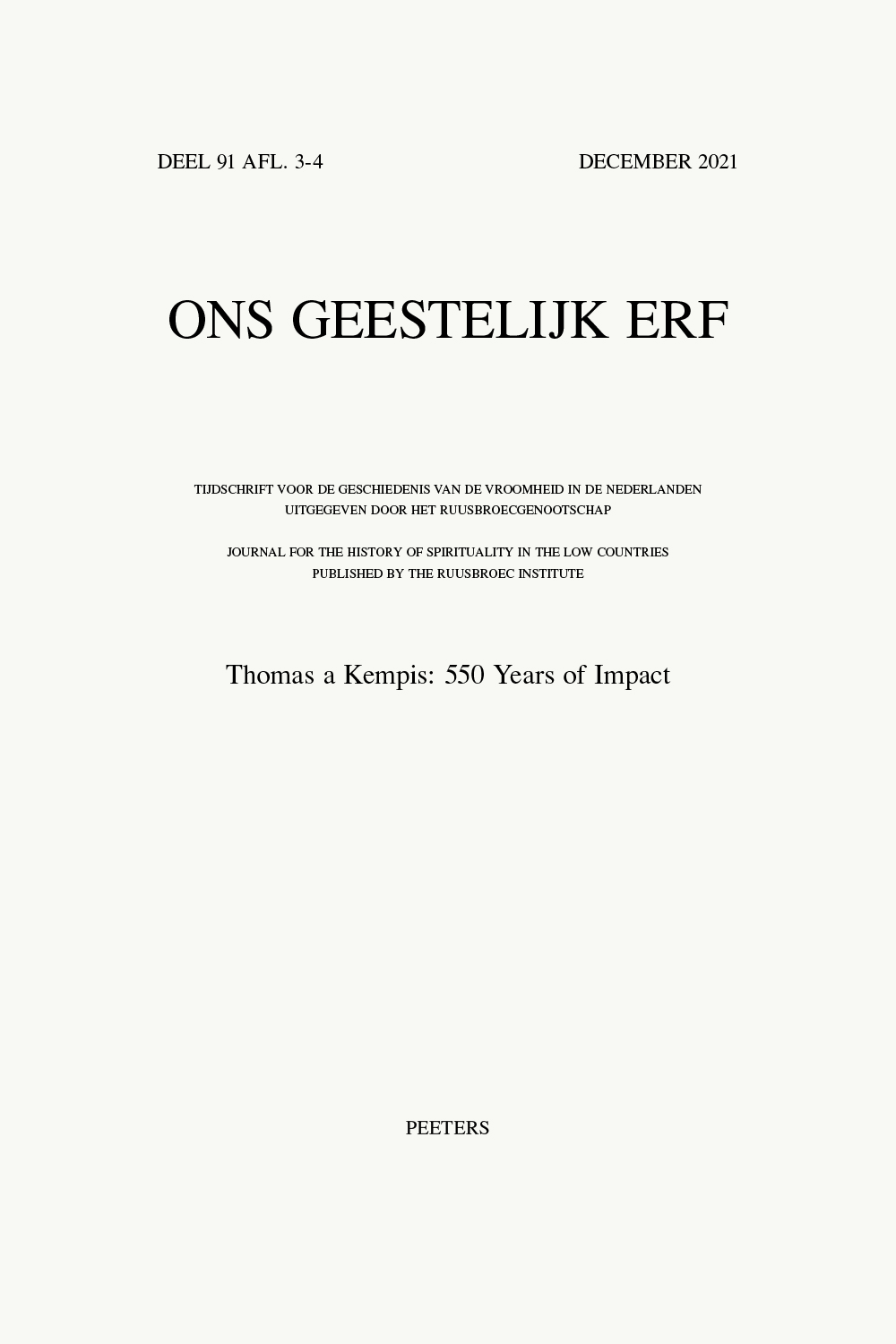 previous article in this issue previous article in this issue | next article in this issue  |

Preview first page |
Document Details : Title: From the Rhine to the Vistula Subtitle: The Low Countries, Germany and Religious Reform in Renaissance Poland Author(s): LOUTHAN, Howard Journal: Ons Geestelijk Erf Volume: 87 Issue: 1-2 Date: 2016 Pages: 179-199 DOI: 10.2143/OGE.87.1.3200544 Abstract : The article examines connections and parallels between lay spirituality of fifteenth and early sixteenth-century Poland with better-known developments along the Rhine in the Low Countries and Germany. It begins with an examination of Cracow with special attention on its German population and its links to the Rhineland. In the late Middle Ages prominent Polish churchmen played significant roles in central Europe. In the fourteenth century Matthew of Cracow forged critical links with Prague, Cracow, and Heidelberg where he served as rector of the university. In the fifteenth the Polish Carthusian James of Paradyż became a preaching celebrity whose influence reached up and down the Rhine. The essay then turns to the early sixteenth century and considers the influence of Erasmus in the Polish lands. We look at two of Erasmus’s texts that harken back to the spirituality of the Devotio Moderna, his commentary on the Lord’s Prayer, commissioned by his friend and royal secretary Justus Decius, and his exposition on Psalm 14 that was highly praised by Erasmus’s personal physician, the Pole Jan Antonin. The article concludes by considering the Erasmian legacy in Poland through the work and activity of three individuals: bishop Piotr Tomicki of Cracow, the Protestant reformers Johannes a Lasco and the royal secretary Frycz Modrzewski. |
|


